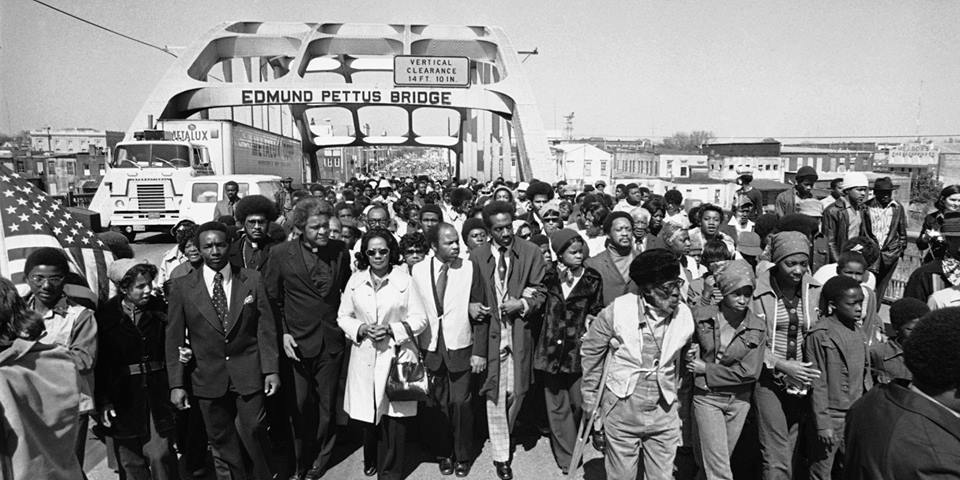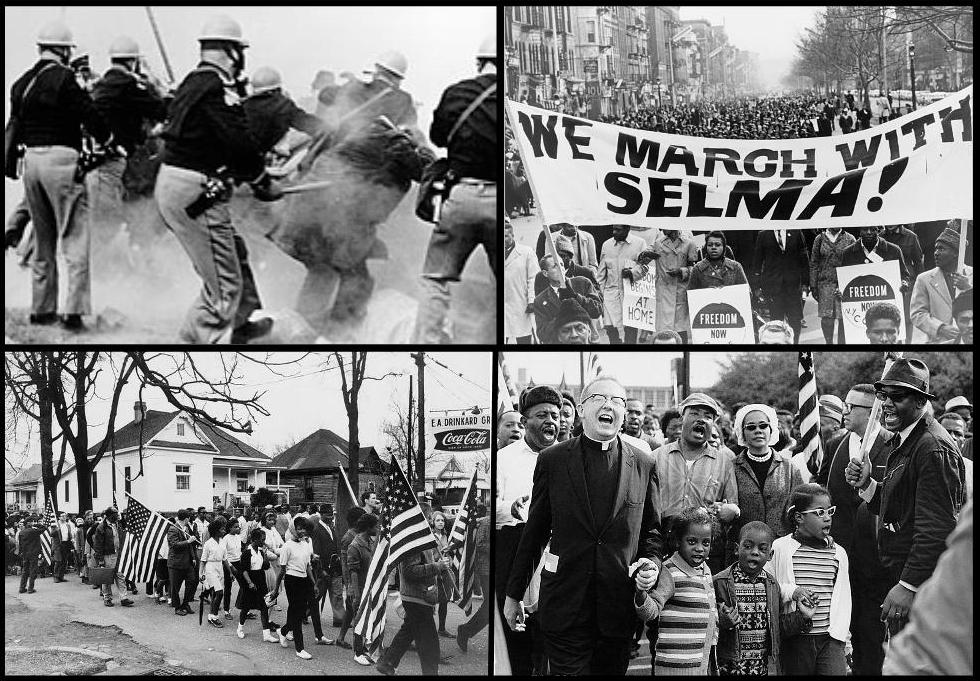
Image courtesy of the National Parks Service
Sixty years ago today, at the height of the Civil Rights Movement, the Dallas County Voters League (DCVL), the Student Nonviolent Coordinating Committee (SNCC), and the Southern Christian Leadership Conference (SCLC) embarked upon a series of marches from Selma to Montgomery, Alabama. These marches were meant to draw attention to the reality that Black people were not able to access their right to vote in the Jim Crow south.
The first of the three marches began on Sunday, March 7, 1965. Led by SNCC chairman John Lewis, who would go on to serve as a US Representative for 33 years, and the Reverend Hosea Williams of SCLC, the march began peacefully until protesters were met with violence by Alabama law enforcement officials.
This event became known as “Bloody Sunday”. That march, along with the two additional marches that followed, served as pivotal moments in the Civil Rights Movement. The Voting Rights Act of 1965 was presented to Congress on March 17,1965 and President Lyndon B. Johnson signed the bill into law on August 6, 1965.

Image courtesy of the Library of Congress
It’s easy to think of this event, like many moments of this time, as simply a remnant of the past where our fore parents fought and won the rights that we should all be entitled to. To this day, there are parts of this country where Black people and people of color continue to face barriers when exercising their right to vote. Right now, so-called leaders in this country are pushing to eliminate DEI initiatives, falsely believing that the principles of diversity, equity, and inclusion uplift people who are undeserving, but DEI is just one of many initiatives created to balance an already uneven playing field.
We’re not fooled by their divisive lies and propaganda. We know that schools, workplaces, and all aspects of public life are made better when those who make decisions reflect the backgrounds and perspectives of our entire population.
NCLR is dedicated to racial justice because not only is it the right thing to do, but because we recognize that so many members of the LGBTQ community are impacted by structural racism, white supremacy, and injustice. All of us live intersectional lives.
Today we honor those who organized, resisted, marched, and demanded more from the country their ancestors built. There is much more to do, particularly at this moment, but NCLR is grateful to be doing this work with you, as we carry on this legacy or making this country a better, and safer place for all of us.









